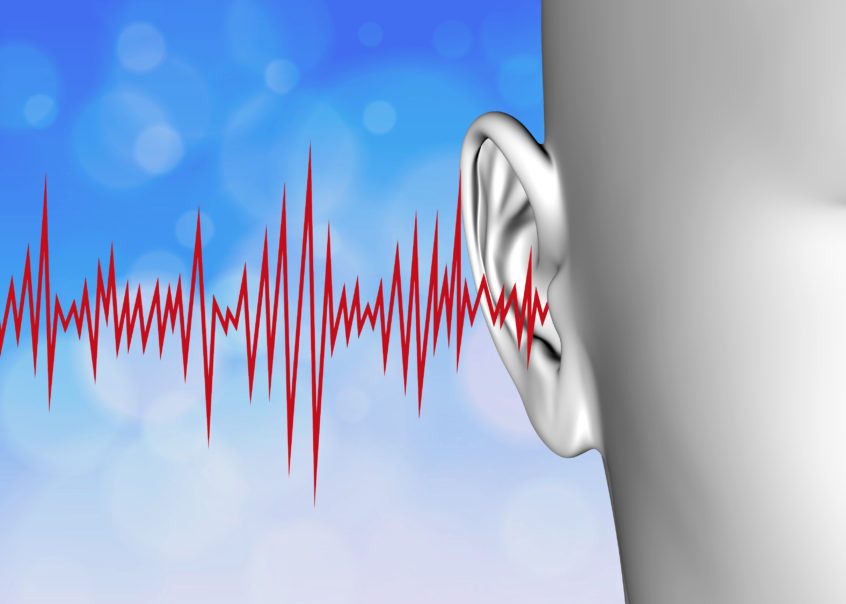Troubled by Tinnitus?
Lots of people experience a sound in their ears that they might describe as buzzing, ringing, clicking, white noise or roaring, and that only they can hear. But what is it and what’s the cause?
According to the American Tinnitus Association (ATA), what these people are experiencing is called tinnitus. It’s one of the most common health conditions in the United States, affecting 45 million Americans to some degree.
It’s actually the perception of sound when no external sound source is present. It’s a sound that only the individual can hear, and each person’s experience is different.
Tinnitus is not a disease in and of itself, but rather a symptom of some other underlying health condition. In most cases, tinnitus is telling you there’s damage in your ears and auditory system. Most often, tinnitus is associated with hearing loss, but there are roughly 200 different health disorders that can generate tinnitus as a symptom.
For most people who have tinnitus, they aware of its presence, but it doesn’t disrupt their lives. It either doesn’t bother them, or they’re able to literally tune it out.
But millions of others can’t do that. An estimated 20 million have symptoms severe enough that they seek medical attention, and approximately 2 million cannot function “normally” on a day-to-day basis.
What Causes Tinnitus?
Hearing loss is often what’s behind tinnitus. In fact, tinnitus may be first sign that you’re experiencing hearing loss. There are two main types of hearing loss that are related to tinnitus. They are:
- Age-related hearing loss (presbycusis) – Hearing often deteriorates as people get older, typically starting around the age of 60. This form of hearing loss tends to occur in both ears and involves the sensory loss of high-frequency sounds. Age-related hearing loss explains, in part, why tinnitus is so common among older adults.
- Noise-induced hearing loss – Exposure to loud noises, either in a single traumatic experience or over time, can damage the auditory system and result in hearing loss and sometimes tinnitus. Traumatic noise exposure can happen at work (loud machinery), at play (loud sporting events, concerts, recreational activities), and/or by accident (a backfiring engine.) Noise-induced hearing loss sometimes is in only one ear, and typically causes patients to lose hearing around the frequency of the triggering sound trauma.
It is important to note that sometimes hearing loss is not directly observable by the patient, who may not perceive any lost frequencies. But this this does not mean that the patient has not experienced hearing damage. A trained audiologist or other hearing health professional can perform testing to precisely determine if there is any hearing loss, and if there is, how severe it is.
Though hearing loss is the most common cause of tinnitus, there are other problems that can be related to the condition. For example, obstruction in the middle ear, such as excessive ear wax, head congestion, dirt or foreign objects or loose hair from the ear canal can cause problems. In many cases, removal of the blockage will relieve the tinnitus symptoms. However, in some cases, the blockage may cause permanent damage that leads to chronic tinnitus.
Though less common, tinnitus also can be related to head and neck trauma, temporomandibular joint disorder, sinus pressure and barometric trauma, traumatic brain injury, ototoxic drugs and a range of medical conditions, including anemia, high blood pressure, thyroid disease, vestibular disorders, psychiatric disorders and tumors or growths.
Again, if you are experiencing tinnitus, you should not assume that one of these medical conditions is the cause. Only an audiologist or another trained health care professional can diagnose the underlying cause of tinnitus.
How Can You Treat Tinnitus?
If you Google tinnitus on the internet, you’ll find all sorts of information—from miracle cures to stories of despair. The fact is that there is no cure for tinnitus, but if it’s bothersome, it can be successfully managed with the help of an audiologist who specializes in the condition.
Susan Smittkamp, Au.D., Tinnitus Specialist with Associated Audiologists, utilizes a multifactorial treatment plan involving ear-level sound devices, hearing aids if the patient has a hearing loss, general wellness and behavioral therapies, as appropriate.
If you experience bothersome tinnitus, schedule an appointment with an audiologist for a comprehensive evaluation.



